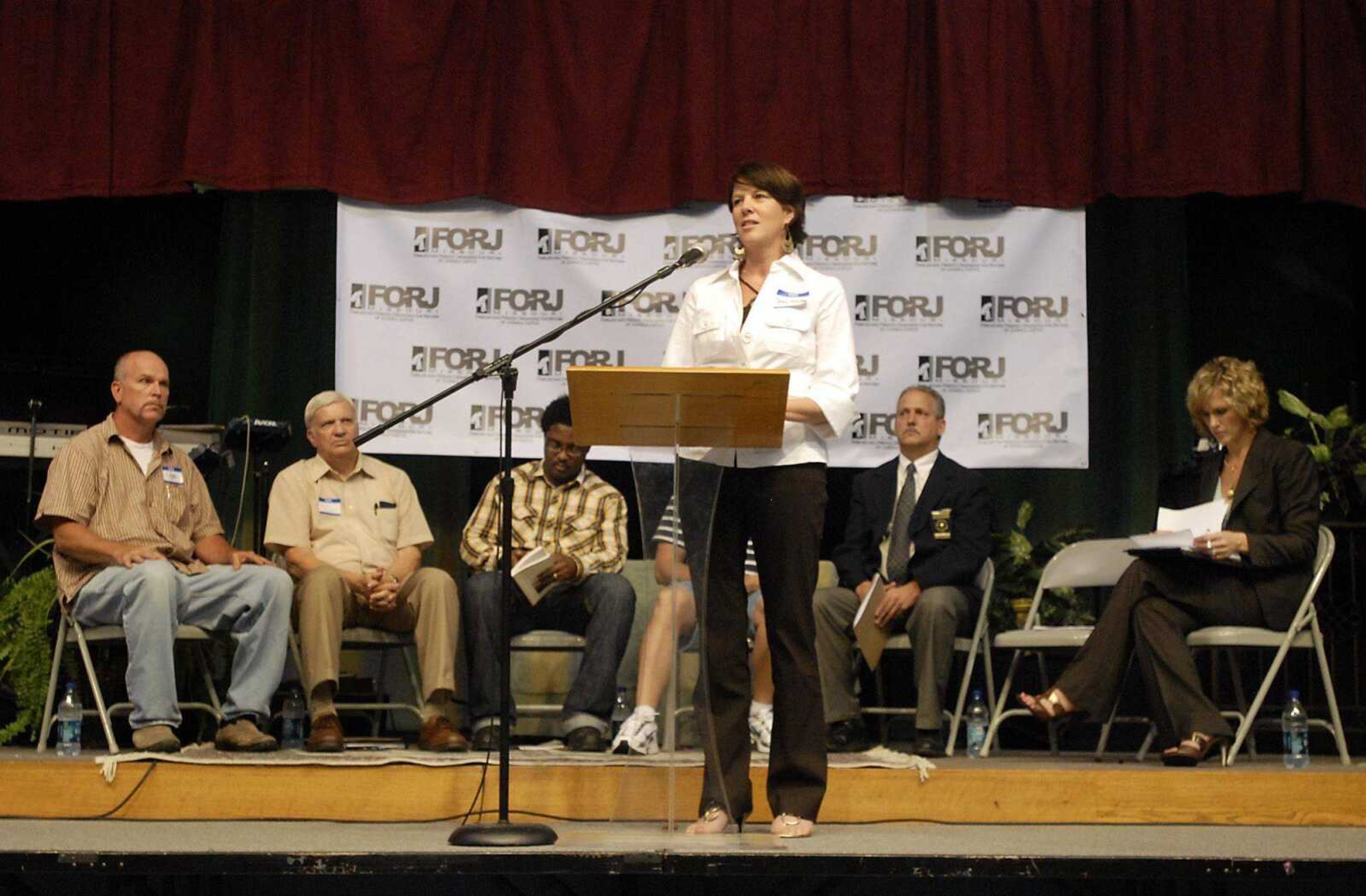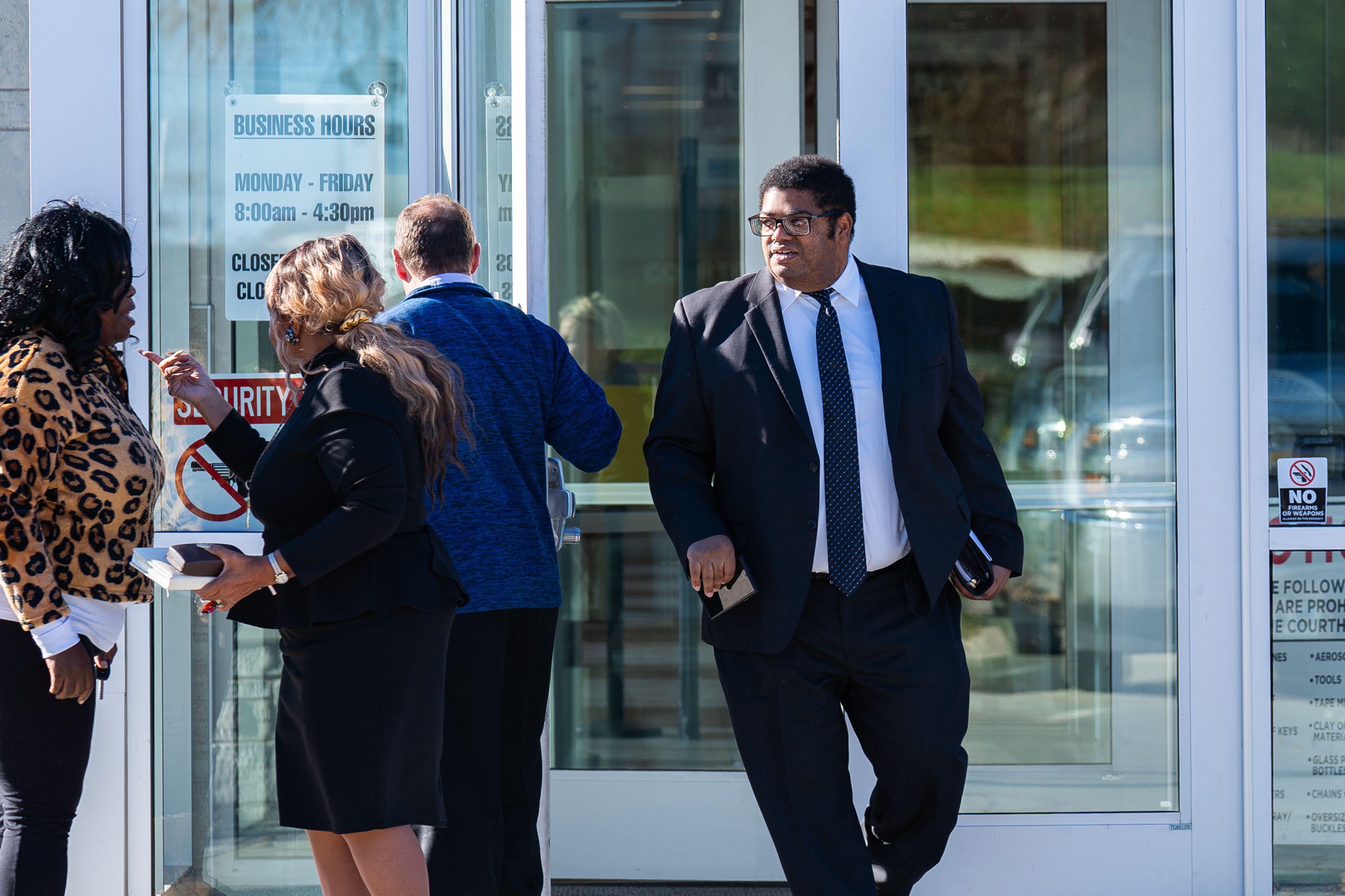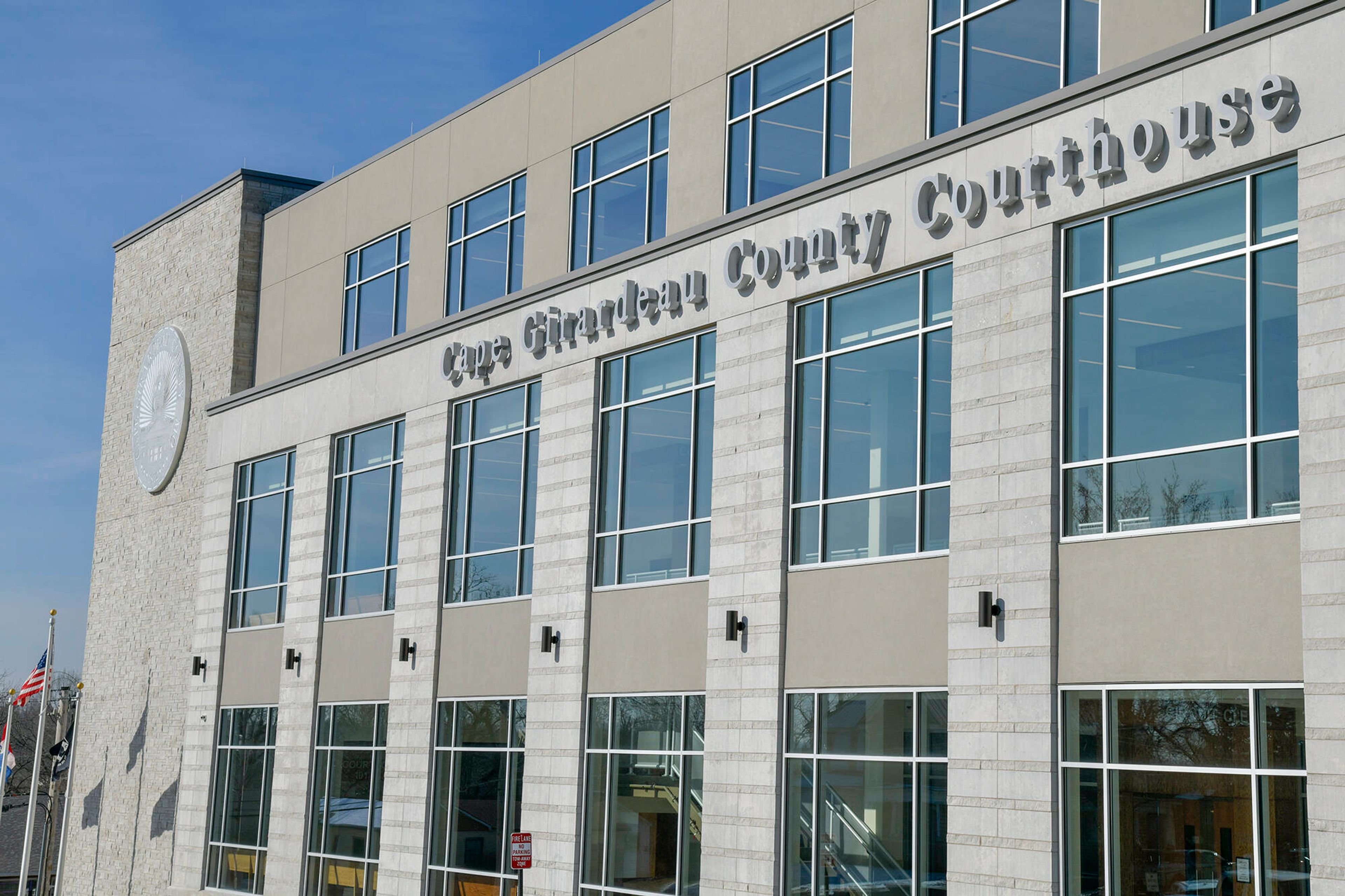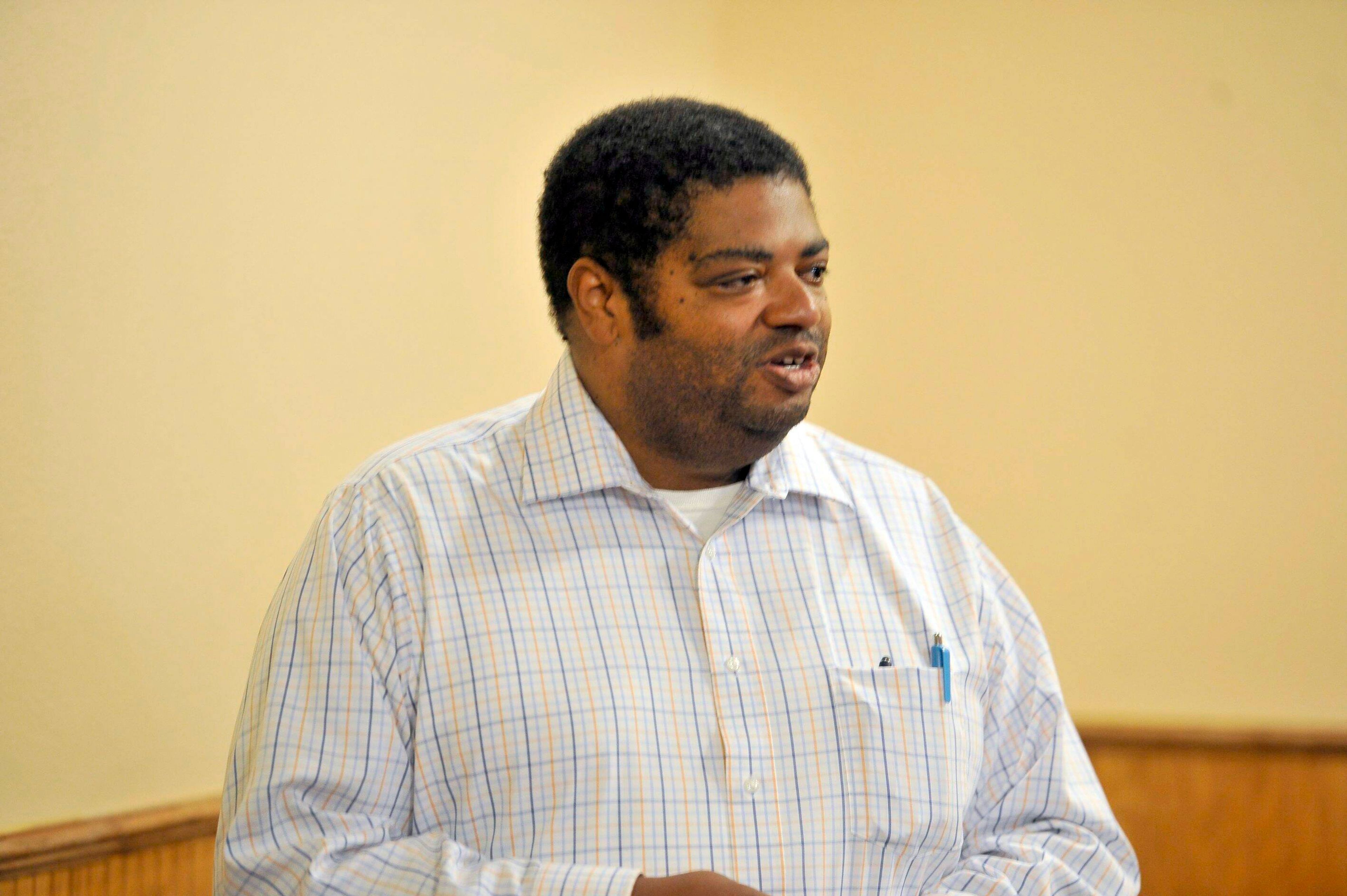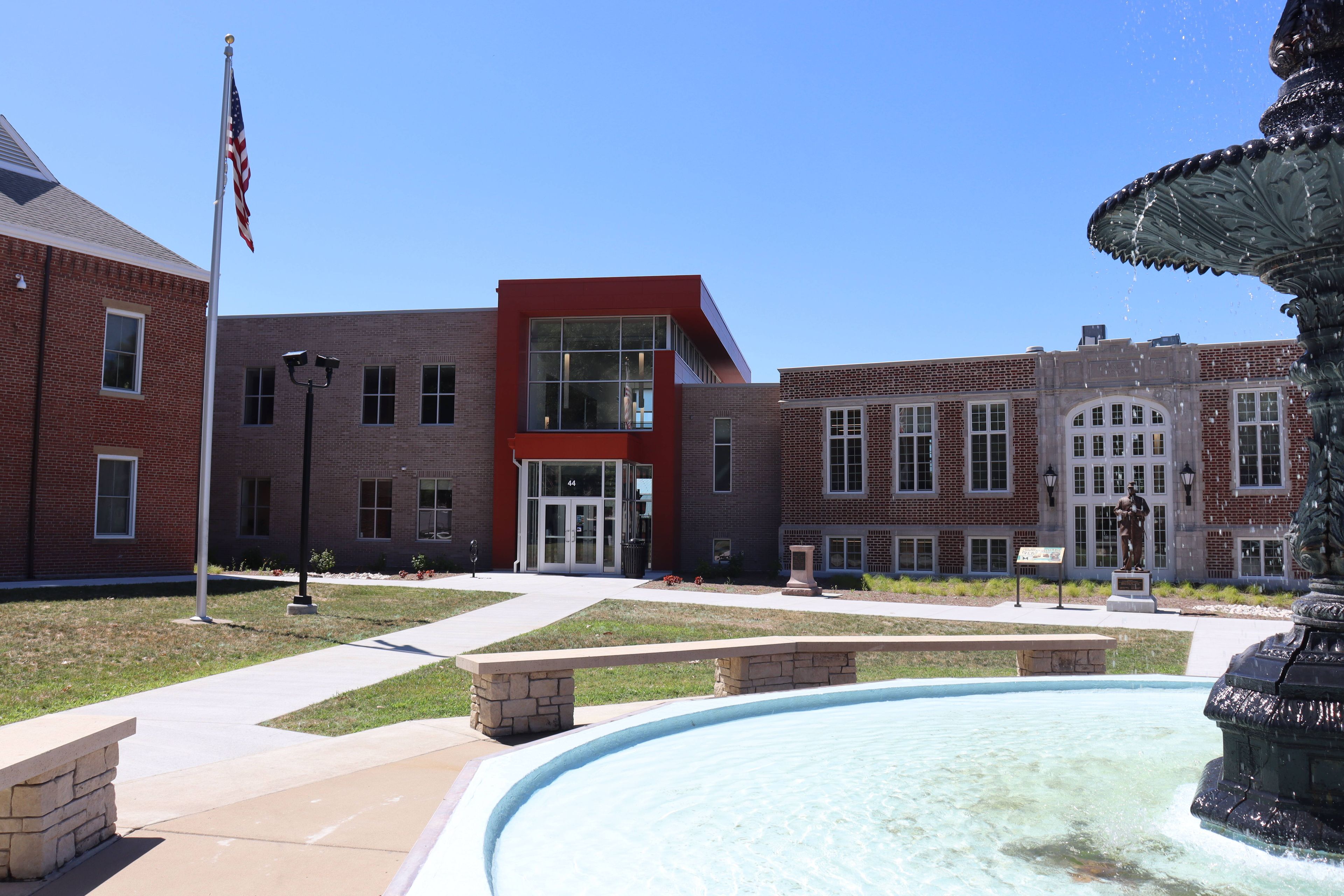Juvenile justice group launches reform efforts
At a panel discussion Tuesday held to launch her own juvenile justice reform organization, it was hard for Jackson mother and longtime advocate Tracy McClard not to get emotional. Still, McClard held nothing back and told bits of her son Jonathan's story, demonstrating why youths shouldn't be locked up in adult prison. Her son committed suicide in an adult facility in January 2008 at age 17...
At a panel discussion Tuesday held to launch her own juvenile justice reform organization, it was hard for Jackson mother and longtime advocate Tracy McClard not to get emotional.
Still, McClard held nothing back and told bits of her son Jonathan's story, demonstrating why youths shouldn't be locked up in adult prison. Her son committed suicide in an adult facility in January 2008 at age 17.
McClard was joined by five other speakers at Centenary United Methodist Church, where they addressed a crowd of around 50 people, many of them high school and college students. The organization, Families and Friends Organizing for Reform for Juvenile Justice, is the first parent-led initiative in the state focused on improving the country's juvenile justice system.
Keynote speaker Dwayne Betts, a published author and poet -- also incarcerated at a young age -- briefly spoke of his experience in prison and said the public should pay more attention to the issue of juvenile justice.
"The public is largely silent on the issue," he said. "My mom didn't know that juveniles went to prison with adults, and when I went to prison she realized how terrible this was and that somebody should be doing something about this."
As parents of children who were in adult facilities, McClard and St. Louis resident Stan Greer, whose son died in a Missouri prison at 24, recalled not knowing anything about what to do and having little communication from prison staff.
Greer said he mostly got news from his son, although it was rare, and had little access to his son while he was in the adult facility. He couldn't even take a Bible to his son, Greer said.
As a spokeswoman from the Campaign for Youth Justice, McClard said a lot of parents she talks with knew nothing about the justice system and no one was able to help them.
"Once they're in the criminal justice system you have very, very limited access. They don't tell you anything," McClard said. "When [Jonathan] died is the only time the prison called me."
The panel also included Joshua Kezer, an Illinois native wrongfully convicted in the 1992 murder of Angela Mischelle Lawless, Missouri Juvenile Detention Alternatives Initiative coordinator Bob Perry and Capt. Gregg Ourth of the Scott County Sheriff's Department, the agency that reopened the Lawless case, leading to Kezer's exoneration.
They addressed the issue of rehabilitation and how more convicted teenagers should be given the opportunity to stay in juvenile facilities for counseling and education.
"In prisons and in jails there's this culture of breakdown where they take your identity of an individual and break it down. They take your individuality away from you," Kezer said. "There's humanity in giving these guilty kids a chance."
By launching her campaign, also knows as FORJ-MO, in a public forum, McClard hoped to make a connection with the public and build contacts. She expects to continue to help families dealing with the juvenile justice system and to educate Washington, D.C., lawmakers looking to update a 35-year-old piece of legislation. The Juvenile Justice Delinquency and Prevention Act remains before the House of Representatives after being passed Dec. 17 by the Senate Judiciary Committee.
McClard will hold an organization meeting each month, with the first at 6 p.m. Oct. 12 at Crossroads Baptist Church in Jackson.
ehevern@semissourian.com
388-3635
Pertinent Address:
300 N. Ellis St., Cape Girardeau, MO
Connect with the Southeast Missourian Newsroom:
For corrections to this story or other insights for the editor, click here. To submit a letter to the editor, click here. To learn about the Southeast Missourian’s AI Policy, click here.

